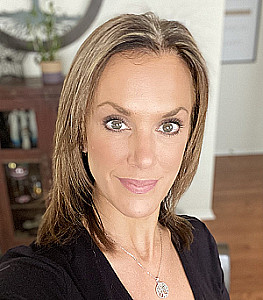A New Look at the Science of Yoga and How It Can Transform Your Life
Description
Vocal Characteristics
Language
EnglishVoice Age
Middle Aged (35-54)Accents
North American (General)Transcript
Note: Transcripts are generated using speech recognition software and may contain errors.
One simple thing, a new look at the science of yoga and how it can transform your life. Written by Eddie Stern, narrated by Tanya Michelle introduction. In the spring of 2010, a researcher and physical therapist named Marshall Higgins came to visit me at My Yoga School in Soho in New York City. He wanted to see if I would be interested in designing a yoga protocol for a scientific study to examine whether yoga could have a positive impact on pre hypertensive conditions in African Americans. 22 years earlier, I had bypassed college opting instead for travel to India and had spent the better part of the years since returning to India studying, practicing and reading everything on yoga that I could, I was quite comfortable with yoga. But I was clueless regarding even the basic tenets of science, here was a very smart person sitting in front of me thinking I knew something and asking for my help. So whether without scientific knowledge, I of course said, yes, little did I know that this meeting would shift my focus within yoga away from studying and memorizing ancient texts and toward investigating what makes yoga work so well. Why was it that a person with back pain? Another with hypertension, another with poor digestion. Others searching for meaning in their lives could all walk into the same yoga class, do the same basic thing and walk out not only feeling better but feeling like what was troubling them or the condition they had was improving. How by doing one simple thing, one generalized yoga practice for people able to reduce stress, ease body pains, improve cardiovascular function, reduce diabetes, medication, feel happier, get angry less often and improve their sleep and digestion. Somehow given the opportunity, the body knew how to correct imbalances. And even more interesting, it was apparent that the yoga poses didn't even have to be done well or right for these positive effects to happen, whether someone is stiff or flexible, thin or heavy sick or healthy yoga seems to work. I had an inkling that it had something to do with the nervous system, but I was not sure what so I began to read to speak to doctors and to investigate This book is largely the result of that investigation that along with 30 years of yoga practice in my discussions with doctors, I learned about the Western presentation of the nervous system. I was already familiar with what the Yoga text had to say about the nervous system and could look for correlates, make conjectures and then discuss those correlates with the doctors. I would always check to see if they felt that what I was saying sounded valid and slowly the ideas presented in this book became refined. I looked into the amazing research that had been and is still being conducted by Dr Stephen Pork. Dr Shirley tells Dr Bethany Kok and many others. I refer to their work throughout this book to shine light on how science understands yoga to be an effective practice for nervous system self regulation. two Burning questions were developing in my mind as I studied one, where do consciousness and biology meet? Does consciousness reflect itself through our biological makeup? Or is our biology? Actually, consciousness manifesting itself. We are human beings after all. And the Yogis use the body which is biological to journey inward toward deeper levels of consciousness. Therefore, it would follow that the body and consciousness are somehow linked. Two is happiness a physiological experience that is by seeking to discover who we truly are through yoga practices that use the body, breath and mind. Can we find a deep lasting inner peace and happiness that exists in a physiological makeup? It seems to me that because we use the body in every aspect of yoga, happiness cannot be simply a mental construct, but as integral to our physical makeup and can be found in the inner mechanisms of our bodies. Perhaps transcendence lies beyond the realm of the body. But what of simple happiness and the ease of knowing who you are? Happiness is a mental construct seems to be an impossibility. We can't hold a thought in our minds for more than a second or two. So how can we mentally hold on to happiness? Happiness perhaps exists somewhere deeper in the Hindu thought systems. Happiness is equated, not with pleasure, but with meaning or purpose. It is not happiness we are after but the experience of our own essential being we are seeking ourselves. Is this experienced in our physiology or are the mind and body a continuum? So there is an integrated experience of being because there is no distinction between body and mind.
